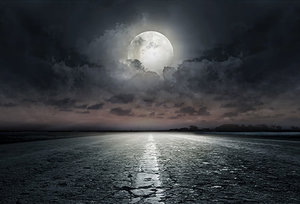Find the Natural Light
By Editorial Staff
These days, artificial light is our primary source of illumination at night, certainly in most parts of the United States, if not most countries around the world. The problem from a health perspective: Artificial nighttime light – particularly outdoor artificial light – is bad for your eyes, increasing the risk of AMD.
AMD stands for age-related macular degeneration – blurring of your sharp, straight-ahead vision because of progressive damage to the macula, which is part of the retina. It's a leading cause of partial blindness in older adults, making it harder to see faces, read or drive – all things that are pretty important to people at any age.
 Research links artificial nighttime light exposure to an increased risk of AMD. The higher the exposure, the higher the risk of experiencing AMD. A significantly higher risk was noted in urban vs. rural areas. The research is observational, meaning that people with AMD had higher exposure to artificial nighttime light than people without AMD. In other words, it does not necessarily mean that exposure causes AMD.
Research links artificial nighttime light exposure to an increased risk of AMD. The higher the exposure, the higher the risk of experiencing AMD. A significantly higher risk was noted in urban vs. rural areas. The research is observational, meaning that people with AMD had higher exposure to artificial nighttime light than people without AMD. In other words, it does not necessarily mean that exposure causes AMD.
That said, anytime you can limit your exposure to artificial nighttime light, and replace it with natural light, you're probably doing your eyes a favor.

